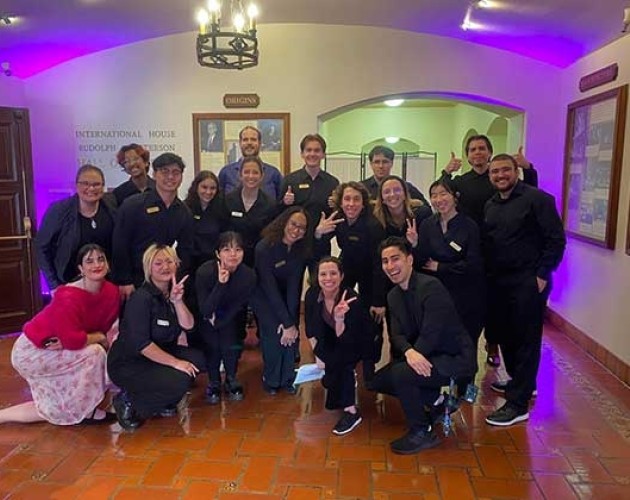
It’s common to feel a little “sticker shock” when you first start looking at housing prices in the San Francisco Bay Area.
Does it really cost that much? Yes, unfortunately it does.
However, with some searching you can find housing in a wide range of budgets depending on the number of roommates, the location, any amenities, and if the space is furnished or not furnished. Our biggest recommendation is to be flexible if you have a tight budget!
In this article, we’ll walk through the various neighborhoods you can live in and their respective typical costs, commute times and the like. This article will also touch on other costs you might face when finding housing.
So read on!
Location, Location, Location: Neighborhood Guides
Housing pricing depends on the location. In general, San Francisco is more expensive than Berkeley or other East Bay cities.
Check out these local guides to learn more about the various neighborhoods:
- Berkeley and Oakland
- San Francisco option #1 and option #2
Berkeley Housing Costs
In the city of Berkeley, the most common price range you will see is $1,000–$1,500 (USD) per month, per person. If you did some digging, you might be able to find a room for $800–$1,000 (USD). This price range will most likely be housing in a private but unfurnished room that is a couple of miles away from the Berkeley campus or further. Or, it could be a furnished but shared room, where you live with one or two other people sleeping in the same room as you. This is very common in the United States. Most U.S. college students expect to share a room with a couple of other people for most of their college years.
$1,000–$1,500 (USD) a Month
If you can afford more per month, then you can start looking at a private room, or a furnished room, a room in an apartment complex with amenities like a gym and pool, as well as closer to the UC Berkeley campus. For $1,000–$1,500 (USD) a month, you can get a private room in a shared residence or a shared or private room in a nice student residence.
$1,500–$2,000 (USD) a Month
At this price range, you can get a nicer private room or even a studio apartment. If you can afford more than $2,000 a month, you can live in an unfurnished whole apartment.
San Francisco Housing Costs
San Francisco has numerous housing options, and while the $1,500 and more per month cost range is the most common, you can find cheaper than that—if you do some searching and have flexibility in your housing needs.
$800–$1,000 (USD) a Month
These options are rare and you will need to do a lot of searching to find them. These options will normally be a shared room with 1 or 2 other people in a student residence. This means you will not have your own kitchen and will need to share a communal bathroom located in the hallway.
$1,000–$1,500 (USD) a Month
You can find a lot of housing options within this price range if you are willing to share a room and live in slightly smaller quarters. The most common pricing you will see is in the $1500-$2000 a month per person range. There is also a decent amount in the $1000-$1500 range if you’re willing to share a room and live in slightly smaller quarters.
If you’re on a budget, you can find rooms for $800-$1000 a month, or sometimes less, but it will take some time and digging to find. They will be shared rooms with 1 or 2 other people in a student residence, meaning you will not have your own kitchen, and you will share your bathroom with the rest of the hallway.
$1,500–2,000 (USD) a Month
You can find a private room in a shared residence at this price range.
$3,000 (USD) or More a Month
If you want an entire apartment, that is going to be $3,000 or more per month.
There is cheaper housing located a few miles from our San Francisco campus. Most likely, you will find unfurnished apartments and you will need to sign a 12-month lease. If you are okay with buying your own furniture and having a longer commute to class, this could be a great option.
Commute Times
The further you live from the downtown area or UC Berkeley campus, the cheaper the housing!
If you’re on a budget, living further away from your classes isn’t as difficult as it may seem.
Both of our Berkeley and San Francisco campuses are located near our subway system, called BART. So if you find a place near a BART station, you could have a very short commute!
Buses and light rails are other public transportation options. Be sure to check how many buses, light rails or BART trains are near your housing choice. How long is the walk from your housing to the nearest public transportation? How long will your overall commute be? Keep in mind that buses and light rail are often delayed in the United States and are not as reliable as they are in some other countries.
Safety
There is not a lot of violent crime in the Bay Area, with the most common crime being car theft or robbery. If you are used to living in a big city, then this won’t be much different. The Bay Area is a large urban area though, so be aware of your surroundings and take basic steps to stay safe.
Homelessness and poverty are real issues here. Depending on where you are from, seeing homeless people in America may come as a surprise. But remember that the Bay Area offers many opportunities for job-seekers, and thus housing has not been able to keep up with demand. Additionally, Berkeley and the Bay Area embrace the unconventional and are generally tolerant of homelessness and understanding of the factors that lead to homelessness.
You will see individuals who are homeless during your studies here. These individuals are still members of our community and deserve our respect. If this concerns you or makes you uncomfortable, please contact our office to talk about these issues.
How to Stay Safe
There are a few general rules to follow in order to stay safe. These common-sense rules include:
- Be alert when walking, especially alone or late at night. That means don’t listen to headphones or talk on the phone. Stay alert to your surroundings.
- Don’t leave expensive items unprotected. Don’t leave your backpack at a table while you go to the bathroom, don’t leave your laptop out at the library while you grab a book and never leave anything in a parked car. This will help you avoid thefts!
- Hold your smartphone and belongings tightly when on public transit or walking outside in busy urban areas and be aware of your pockets. Don’t put anything in your back pockets.
- Travel with others so you are not alone. If you are near the UC Berkeley campus, you can always call a BearWalk escort to walk you home!
- Remember to keep your doors and windows locked, even when you are home. Close your blinds when you are not home so people can’t see what’s inside your house. It’s a good idea to leave a light on and ask someone to collect your mail if you will be out of town.
You can purchase a security system like Simplisafe, Ring or Nest if you are concerned.
If you live in San Francisco, you can download apps that share live crime updates like Citizen. If you live in Berkeley or San Francisco, we recommend signing up for Nixle for UCPD alerts around Berkeley and the San Francisco campus.
Hidden Costs: Utilities and Internet
You will need to pay for utilities like gas and electricity, water and Internet if they are not already included in your housing costs. Ask your landlord about this when you tour the apartment and definitely before you sign the lease.
If you rent from one of the placement companies we list on our housing website—such as Anyplace Housing, Kapi Residences or Academic Housing Rentals—the price is a little higher because the apartment comes furnished with all of the household items you need like pots and pans, as well as including utilities and Internet.
So make sure you know what is included in the monthly price.
Lease Duration
Shorter leases tend to have a more expensive monthly rent. This means you will pay more each month for a 6-month lease or a month-to-month lease than you would in a 12-month lease.
Signing Costs
Usually at the time when you sign the lease, you will need to pay the first month’s rent and a security deposit, which is usually around the cost of one month’s rent. You should get the security deposit back when you move out, minus cleaning costs—which should be $100 for normal wear and tear. Make sure you discuss with your landlord how you will receive your security deposit back. It is usually sent a few weeks after you move out.
Some landlords will ask for first and last month’s rent when you move in instead of a security deposit. In that case, you will not pay the last month’s rent and you will not get any money back.
Need More Assistance?
If you are having trouble deciding on a budget or have additional questions about housing costs, email extension-intl@berkeley.edu or make a housing consultation appointment. We are happy to help you think through the options so you can make the best housing decision!


